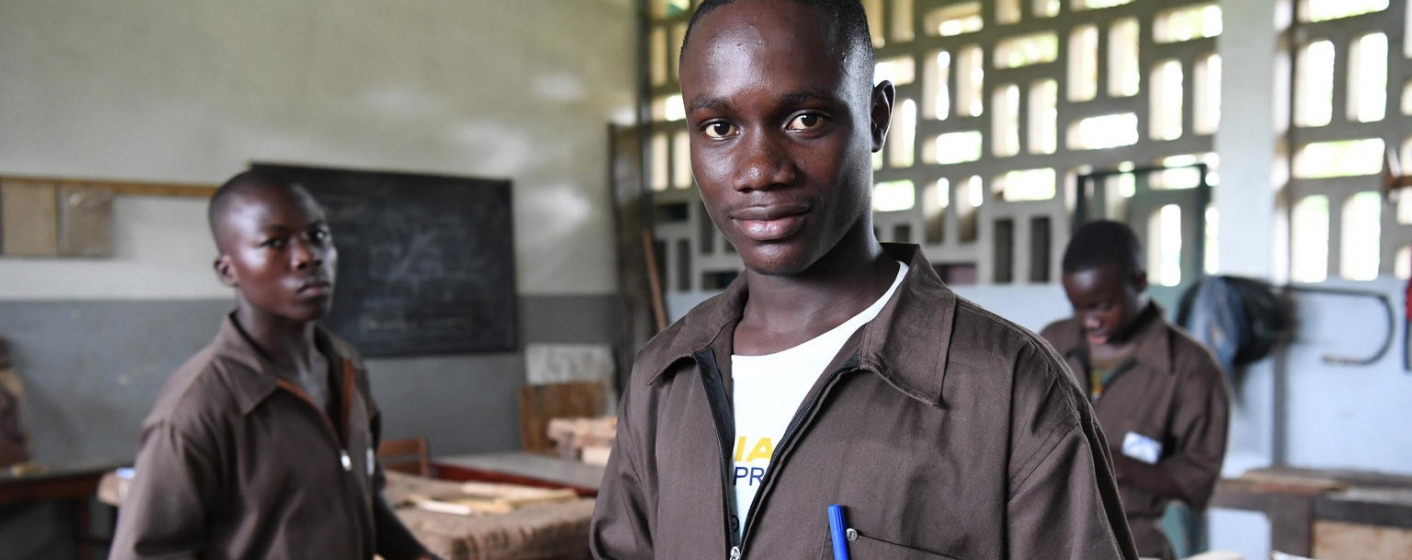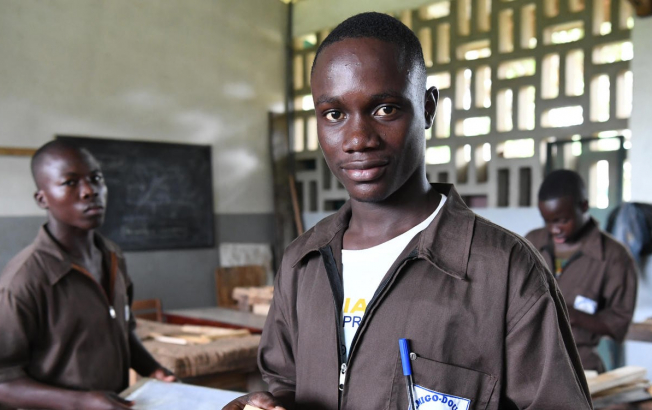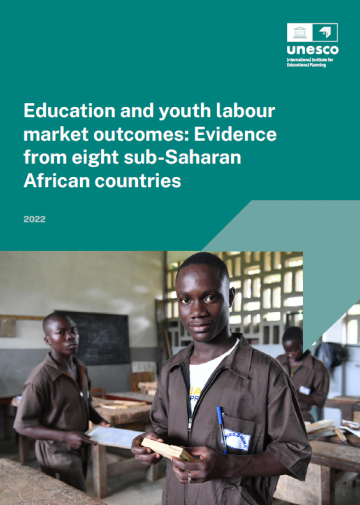To what extent can education help the youth in sub-Saharan Africa secure decent jobs?
The newly published IIEP-UNESCO Dakar report entitled: Education and youth labour market outcomes in sub-Saharan Africa: Evidence from 8 countries, highlights to what extent education is associated with positive employment outcomes, especially when it comes to returns to schooling. However, while more educated youth do better than their less-educated peers, their labour market outcomes remain quite poor due to the lack of high-skilled jobs and decent work opportunities.
Sub-Saharan Africa’s youth, representing 24 per cent of the total workforce in 2019, do poorly in the labour market. The challenge of youth employment in the continent lies mainly in the low quality of jobs, according to the recently published IIEP-UNESCO Dakar report: Education and youth labour market outcomes in sub-Saharan Africa: Evidence from 8 countries.
As most young people cannot afford to remain unemployed due to widespread poverty and the lack of social safety nets, they feel pressured, regardless of their level of qualification, to take any job including low-quality jobs to support themselves.
The poor labour market performance of youth can be attributed to both demand and supply side factors. On the demand side, these include low levels of economic development, job-poor growth, an unfavourable business environment, low competitiveness, low labour productivity, lack of wage employment and decent work opportunities, and a pervasive informal economy.
On the supply side, the problem is related to the poor development of human capital. Despite recent progress young people are undereducated, and underqualified, or the skills and competencies they acquire are not aligned with labour market needs and/or do not meet employers' expectations.
Furthermore, youth are disadvantaged compared to adults in that they are less experienced and protected. Accordingly, youth labour market conditions are characterised by the prevailing last-in-first-out principle, which is exacerbated in times of crisis. Moreover, not all youth are on equal footing. Vulnerable youth, such as young women, and youth located in rural and remote areas, tend to accumulate multiple hardships that further jeopardise their employment and decent work prospects.
The report highlights that education is generally associated with positive employment outcomes, especially when it comes to returns to schooling. However, while more educated youth do relatively better than their less-educated peers, their labour market outcomes remain quite poor. Compared to tertiary education, vocational training is associated with greater access to employment and skills matching but poorer quality jobs, especially in terms of informality and time-related underemployment.
To what extent does education increase the chances of the youth accessing employment, completing the labour market transition, and get decent jobs? By addressing these questions, this paper attempts to draw conclusions on how well education speaks to economic demand, labour market needs and contributes to mitigating prevailing skills mismatches.



